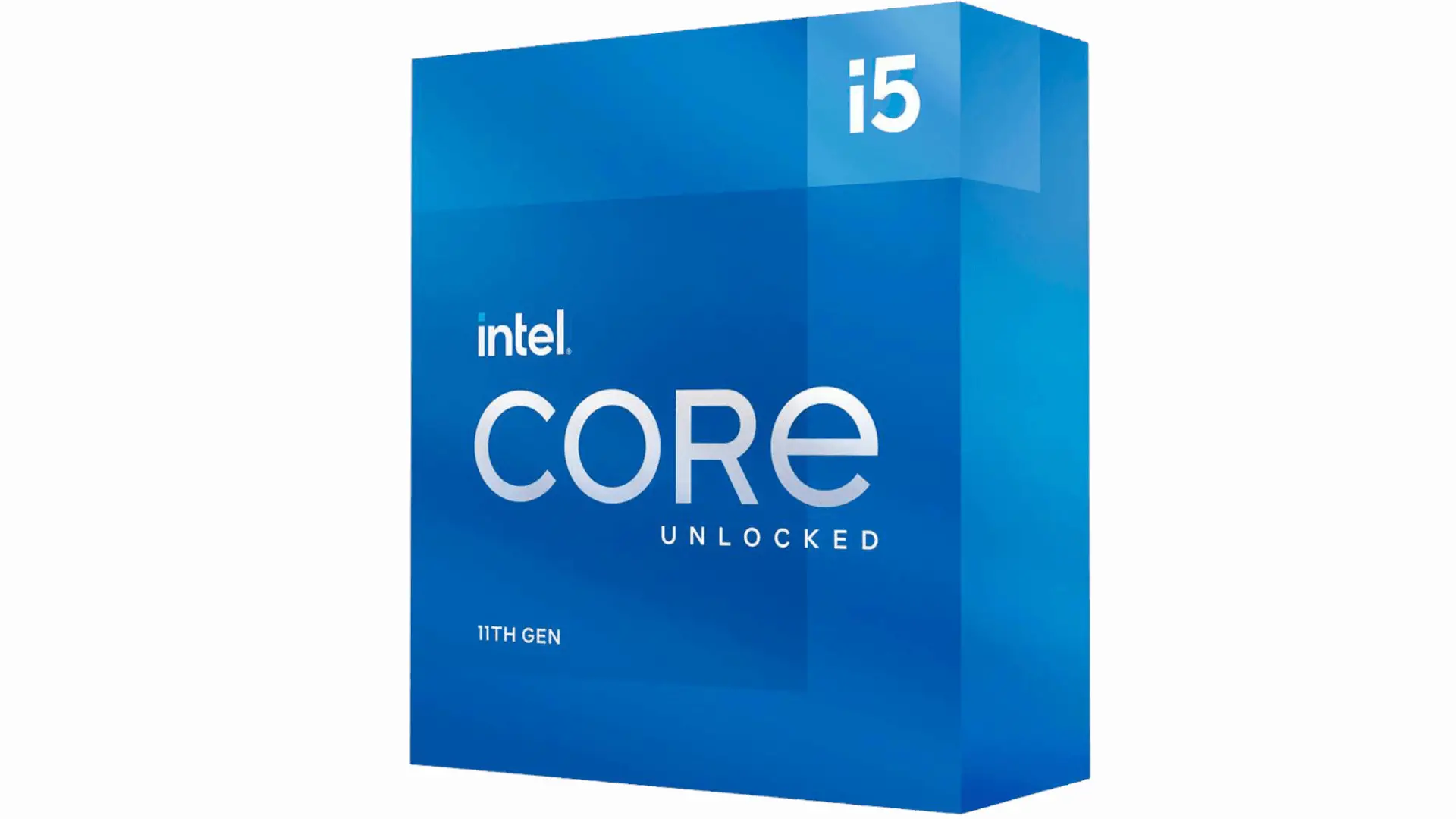The six-core, twelve-thread Intel Core i5 11600K ($262) adds some stability to Intel’s freshly released 11th Generation (“Rocket Lake”) series of desktop CPUs. The Core i7-11700K chip’s premature sales by a reseller a few weeks ago and subsequent early testing were the first indications of Rocket Lake launch instability.
The Core i5-11600K has shown to be a more durable look at what we can hope to expect out of Intel’s range of forthcoming CPUs, while the Core i9 is still having some issues that we’re still working through in our testing of the company’s flagship Intel Core i9-11900K.
As always, Intel’s single-core performance remains strong. The gaming results were a bit back-and-forth against the competition, and the necessary platform upgrade (to the LGA 1200 socket) might be too expensive an entry burden for some midrange-component shoppers. However, the Core i5-11600K scored impressively in many single-core runs that had previously favored AMD’s $299 six-core/12-thread Ryzen 5 5600X.
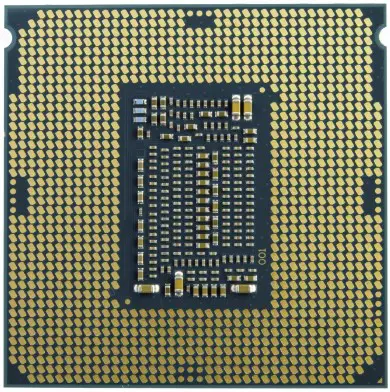
It also defends itself against the Intel Core i5-10600K from the previous generation. The Intel Core i5 11600K is a strong entrance into a relatively crowded, but constantly growing, market niche for the Intel faithful searching for a reliable chip to utilize with a video card to PC game on a budget.
Intel Core i5 11600K Specifications
Let’s quickly review the specs before moving on to performance. A 6-core/12-thread CPU, the Intel Core i5 11600K. This means that it has more cores than 4 and only two fewer than the i9 series. This level of performance strikes a good balance. Although Intel Turbo Boost Technology 2.0 is supported, the system’s base clock frequency is 3.9GHz. As a result, it can turbo up to 4.9GHz. 4.6GHz is listed as the Intel All Core Turbo Frequency.
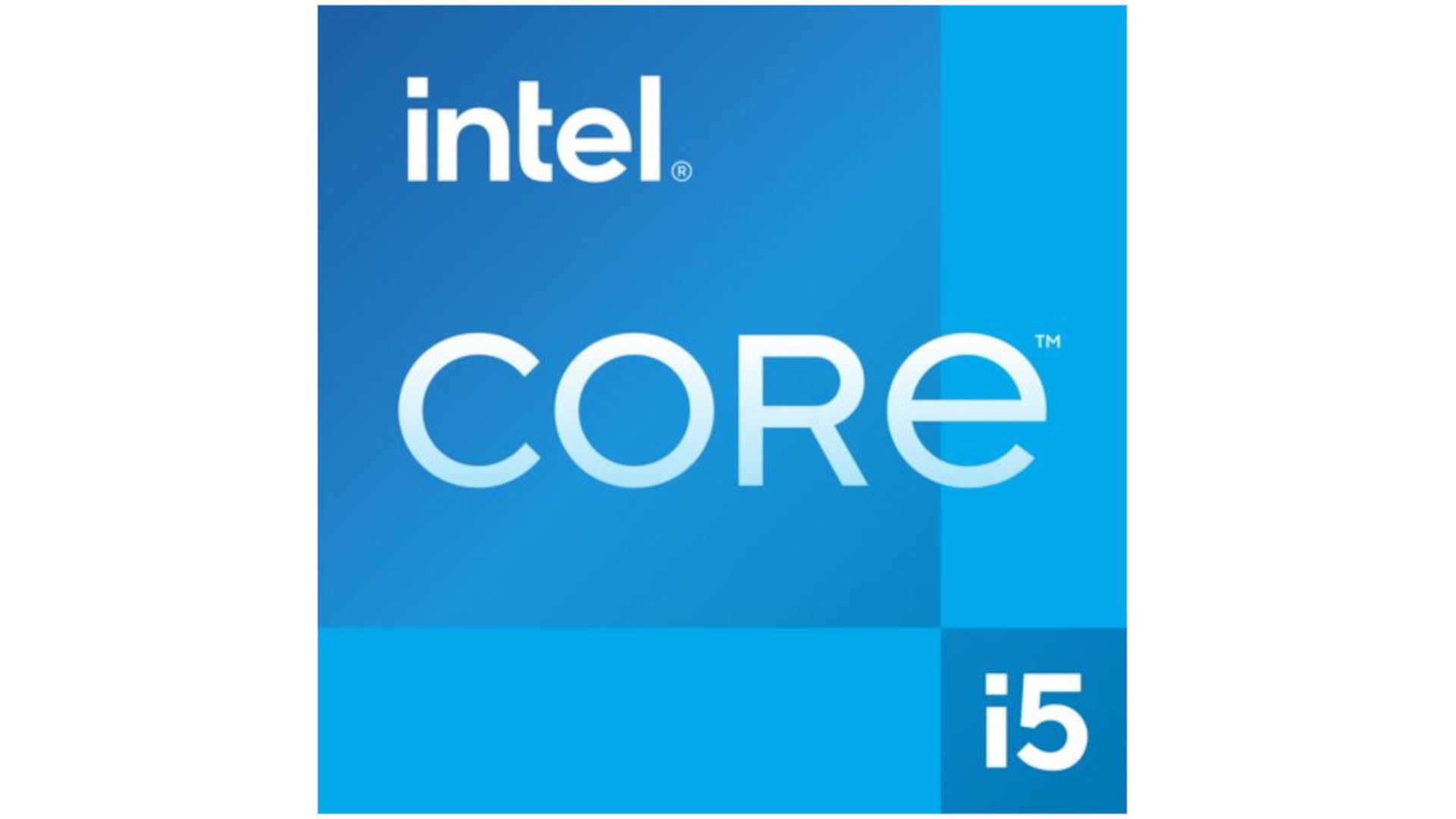
It contains 125W of Thermal Design Power and 12MB of cache. Yes, that is a really high power restriction for this CPU, however, it is necessary for this design to achieve the higher peak and all core frequency. Overclocking is also permitted on the “K” version.
Although DDR4-3200 Gear 2 is officially supported, the RAM may really be configured in the motherboard’s BIOS to run at Gear 1 and 3200MHz instead. We gave it a try, it works. Otherwise, DDR4-2933 is officially supported by Gear 1. The brand-new Intel Xe UDH Graphics 750 is also included. Computer configurations that don’t require discrete graphics will find it appealing with the new integrated Intel Xe graphics from Tiger Lake.

We must look at the AMD Ryzen 5 5600X while comparing CPUs from the competition. That CPU costs $299 and has a configuration of 6 cores and 12 threads. Therefore, in a typical price situation, pricing for the CPUs will be comparable. In actuality, the Intel Core i5 11600K ought to be more affordable and have a pricing advantage.
Intel Core i5 11600K Essential information
| Product Collection | 11th Generation Intel® Core™ i5 Processors |
| Code Name | Products formerly Rocket Lake |
| Vertical Segment | Desktop |
| Processor Number | i5-11600K |
| Status | Launched |
| Launch Date | Q1’21 |
| Lithography | 14 nm |
| Recommended Customer Price | $288.00 – $298.00 |
| Use Conditions | PC/Client/Tablet |
Intel Core i5 11600K Specs
| Total Cores | 6 |
| Total Threads | 12 |
| Max Turbo Frequency | 4.90 GHz |
| Intel® Turbo Boost Technology 2.0 Frequency | 4.90 GHz |
| Processor Base Frequency | 3.90 GHz |
| Cache | 12 MB Intel® Smart Cache |
| Bus Speed | 8 GT/s |
| TDP | 125 W |
| Configurable TDP-down Base Frequency | 3.60 GHz |
| Configurable TDP-down | 95 W |
Intel Core i5 11600K Performance & Tests
The flagship Core i9 11900K’s primary goal was to surpass AMD Ryzen competition, for better or worse, and reclaim the top spot in the gaming CPU market. While it does so in terms of raw frame rate, the Ryzen 9 5900X and Ryzen 7 5800X are still light years ahead of the top Rocket Lake chip in terms of processing performance, platform, and value proposition.
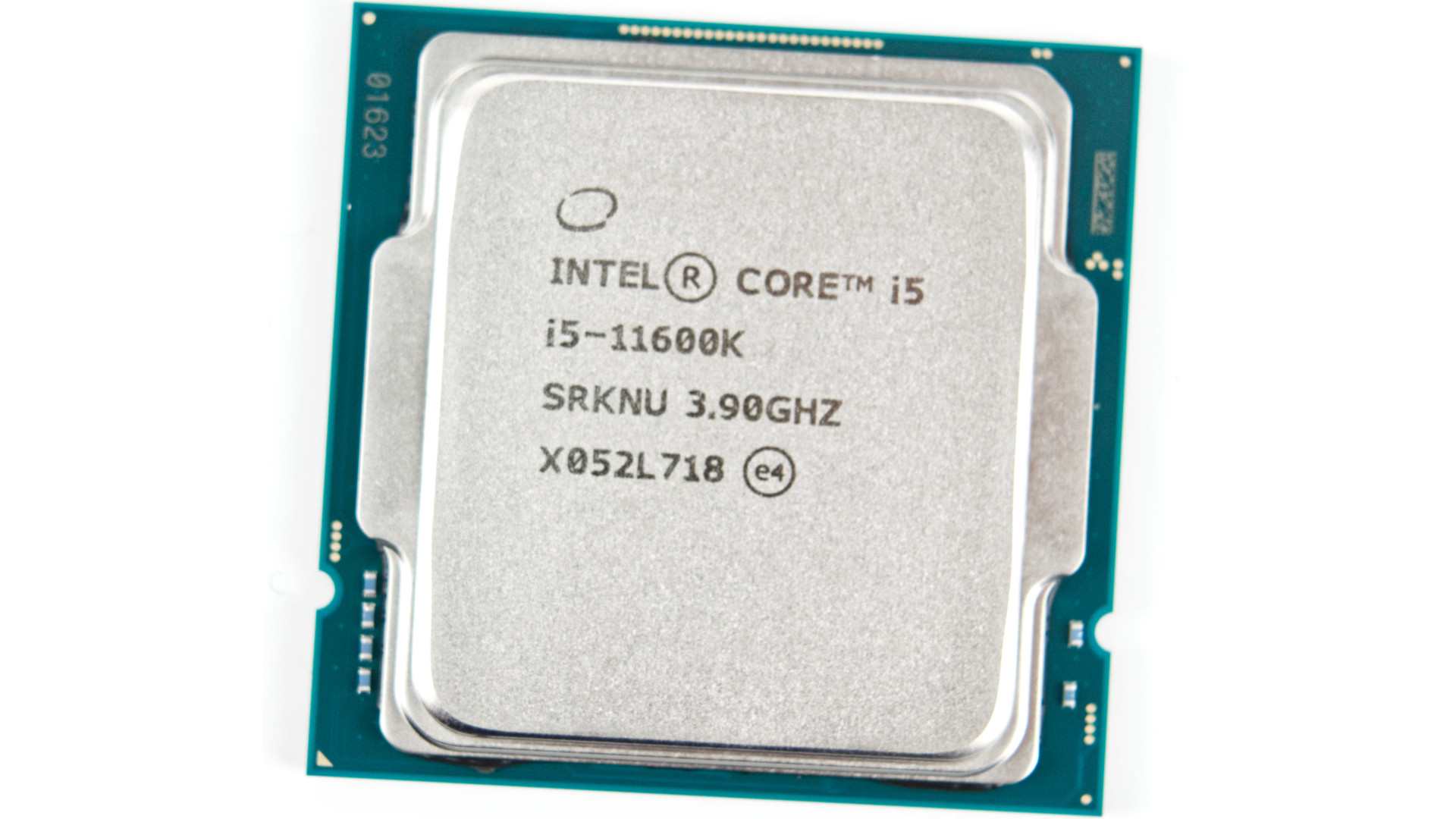
But this is much closer to it. As a standard six-core processor, the Intel Core i5 11600K directly competes with AMD’s Ryzen 5 5600X, which has comparable specifications. In this case, the benchmark competition is much more competitive overall.
With the exception of a few frames per second here and there, the performance of the Intel Core i5 11600K in games is typically nearly comparable to that of the 5600X. In comparison to Intel’s i9 11900K, it is also practically on par. It’s sufficient to say that this is a more than adequate gaming processor that won’t obstruct your graphics card from rendering the hell out of its silicon butt.
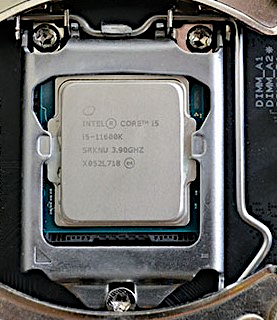
But where the Rocket Lake i9 was limited to that, the Intel Core i5 11600K competes head-to-head with the 5600X in the remaining tests in our testing suite. It performs slightly worse than average in our CPU-intensive X264 and Cinebench tests but only slightly; in terms of memory, it performs substantially better.
The Rocket Lake i5 is something to note, though. Intel has developed a gearing mechanism for its memory, allowing you to attain higher frequencies with a 1:2 ratio by decoupling the memory controller’s 1:1 ratio (known as Gear 1). (known as Gear 2). The i5 will typically operate at Gear 1 for DDR4-2933 and Gear 2 for DDR4-3200.
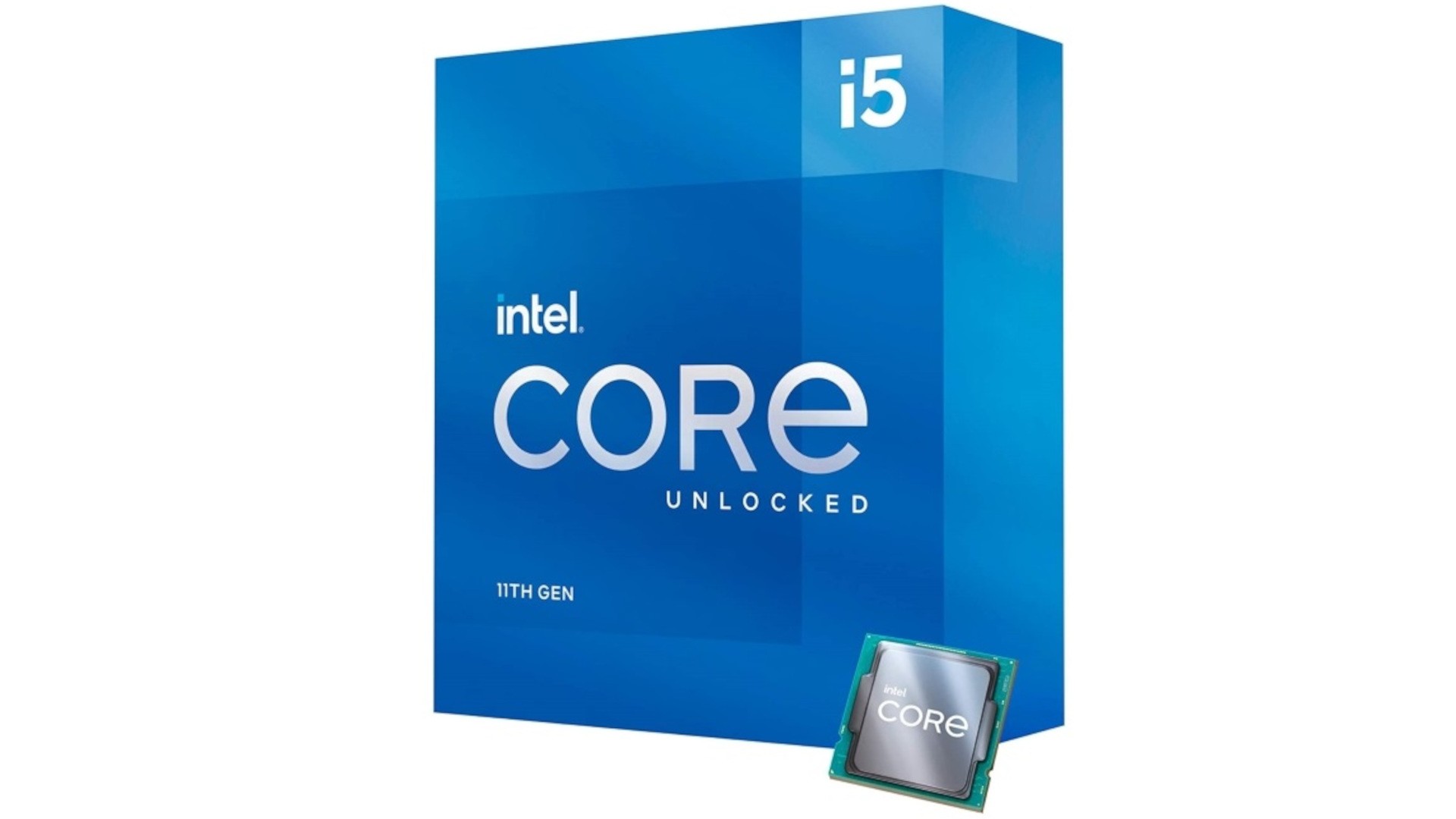
However, because Intel’s processors have historically been able to run at speeds up to 3,200MHz with the original 1:1 ratio (and have consistently exceeded rated specs in our tests), that is the speed at which our CPU benchmarks are set.
The 11600K obtains a memory bandwidth of 41.65GB/s with that default configuration, but if you switch to Gear 2, that number lowers by a third to just 27.67GB/s. Something to keep in mind if you’re just interested in frequency numbers for fun, and something to make sure you verify after enabling your XMP settings in the BIOS.
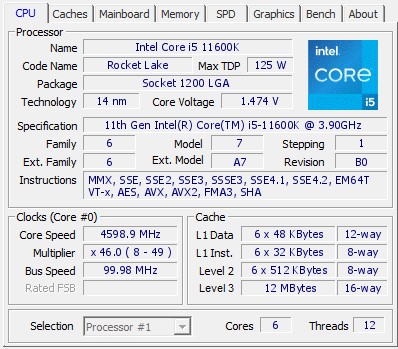
The only area where the Core i5 11600K and the Ryzen 5 5600X significantly differ is in terms of power. The 7nm Zen 3 design is extremely efficient, as seen by the chip’s peak power consumption of only 76W. In contrast, the Rocket Lake i5 manages 130W, and if you push it with multithreaded workloads, it actually manages far more. That is the primary weakness of this 14nm back-port.
Intel Core i5 11600K Conclusion
The Intel Core i5 11600K should be taken into account if you’ve been holding off on upgrading an older-generation Intel midrange CPU, especially if you’re an Intel aficionado who wants a system that can handle moderate gaming on a processor that outperforms outdated UHD Graphics 630 versions.
However, for that particular use case, AMD’s Ryzen 5 3400G again steps in to demonstrate its superiority over Intel’s Core i5-11600K as the IGP-based gaming option, leaving Intel in a position that has become all too familiar of late: a very workable solution, but trailing in AMD’s digital footprint.
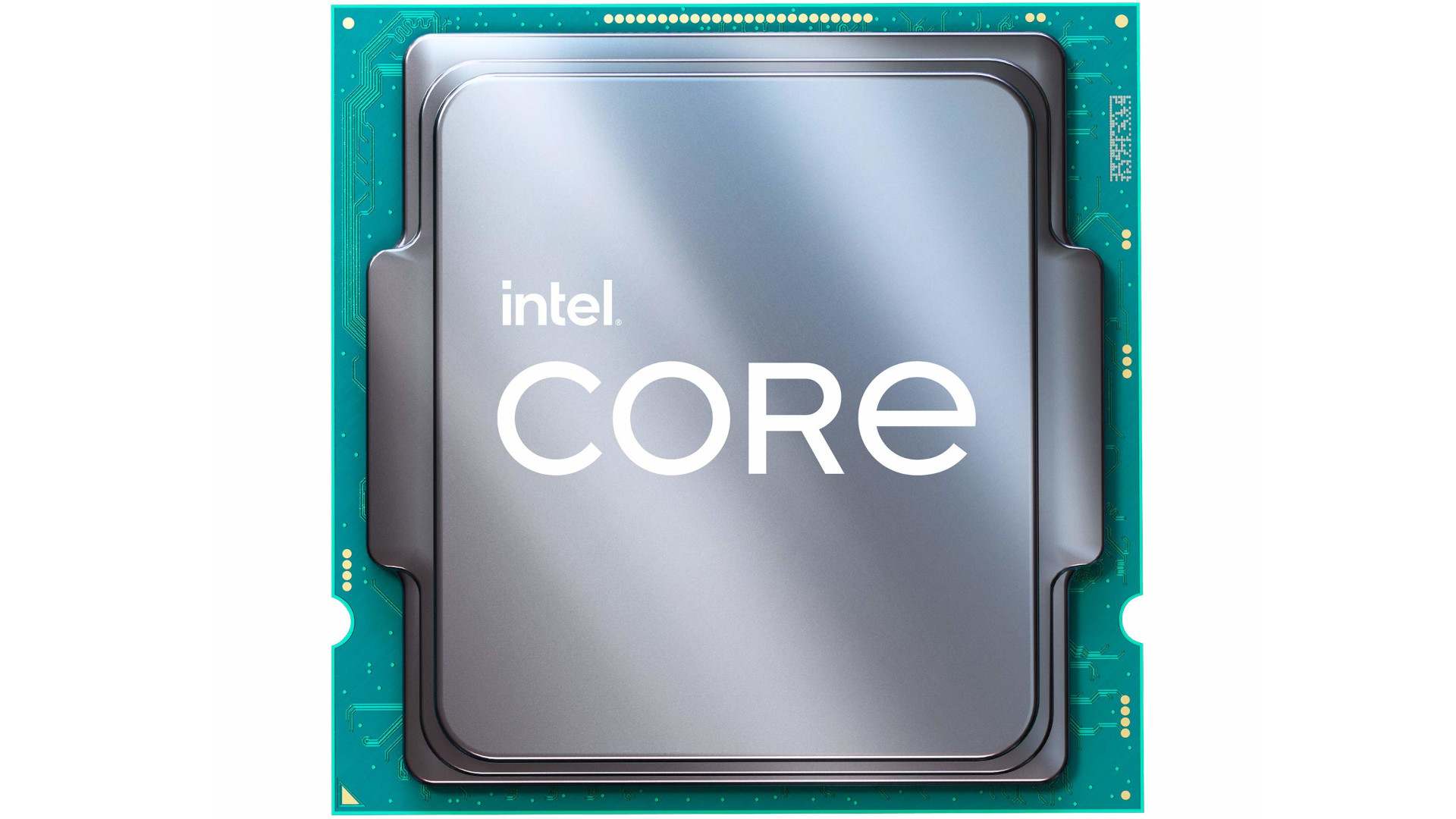
Is the Intel Core i5 11600K worth it?
The Intel Core i5 11600K value will vary depending on your use cases, budget, and individual requirements.
To assist you in deciding whether the i5-11600K is worthwhile for your use case, take into account the following factors:
Performance: The 6-core, 12-thread Intel Core i5 11600K processor is well-known for its potent performance. It works great for multitasking in general and gaming and creating content.
Gaming Performance: The Intel Core i5 11600K provides good gaming performance if gaming is your main priority. This is especially true when combined with a powerful graphics card. But the GPU that is selected might also have an impact on how well a game runs.
Unlocked for Overclocking: The i5-11600K’s “K” prefix denotes its unlockability, which permits overclocking. It gives you the option to overclock the processor if you’re interested in going above its stock frequencies.
Cost: Take into account the i5-11600K’s price and how it fits into your spending plan. Compare its price and performance to those of other AMD and Intel processors.
Determine whether the processor satisfies your present requirements and has the potential to function well in the future. This procedure is known as future-proofing. Think about future developments and software requirements.
With its six cores and twelve threads, the Intel Core i5-11600K is a powerful gaming processor that also supports PCIe 4.0, which allows for speedier SSDs. Additionally, it is reasonably priced at $269 as opposed to the AMD Ryzen 5 5600X’s $349. The Intel Core i5 11600K does, however, have certain disadvantages, including excessive power consumption, elevated temperatures, and a lack of a built-in cooler. Additionally, a new platform with an LGA 1200 socket is needed, which could raise the upgrading cost.
Is Intel Core i5 11600K good for gaming?
Indeed, the Intel Core i5 11600K is a good gaming processor. One of the highlights of Intel’s 11th-generation desktop CPU lineup, the Comet Lake model is renowned for its powerful gaming performance. Several salient characteristics render the i5-11600K a fitting choice for gaming:
Elevated Clock Speeds: The Intel Core i5 11600K boasts elevated base and boost clock speeds, which are advantageous for gaming experiences, especially in games that significantly depend on single-threaded processing.
Twelve Threads and Six Physical Cores: The CPU has twelve threads altogether because it supports Hyper-Threading and has six physical cores. Multitasking and playing recent games that support many cores are much easier with this functionality.
Because of its affordable pricing, PCIe 4.0 capability, and strong single-core performance, the Intel Core i5 11600K is a suitable processor for gaming. Its shortcomings include its high power consumption, its high operating temperatures, and the absence of built-in cooling.
Upgrading can be more expensive if a new platform with an LGA 1200 socket is needed. The Intel Core i5-11600K can run most games smoothly, according to web search results, although it can have trouble with some demanding games or multitasking situations. You might choose to go with the AMD alternative if you’re searching for a more balanced and effective processor or if you currently own a motherboard that works with the AMD Ryzen 5 5600X.
Can you overclock the Intel Core i5 11600K?
The Intel Core i5 11600K processor can be overclocked to achieve performance gains above the factory levels. The method of overclocking involves raising the CPU’s voltage and clock speed to make it operate more quickly. But in order to maintain stability and longevity, overclocking also raises the CPU’s power consumption, heat production, and noise level. For this reason, you must have a sufficient power supply and cooling system.
The Intel Core i5 11600K processor can be overclocked utilizing a variety of techniques and resources, including the BIOS settings, the Intel Extreme Tuning Utility, and certain motherboards’ AI functions. Additionally, you have the option of using a fixed or adjustable voltage mode or modifying the overclocking parameters for each core separately.
To achieve the greatest balance between performance and stability, you should test and monitor your system carefully. Depending on your CPU, motherboard, RAM, cooling, and power supply, there may be differences in the ideal overclocking settings.
With the Intel Core i5 11600K processor, some users have claimed to reach overclocks of up to 5.1 GHz or 5.2 GHz on all cores, or higher on select cores. These outcomes are not assured, though, as they can call for high voltages, upscale cooling, and premium parts. Always overclock at your own risk, and make sure you take all necessary safety precautions.
What temperature should an Intel Core i5 11600K run at?
The maximum temperature of the Intel Core i5 11600K processor is 100°C, after which the CPU will begin to reduce its speed in order to avoid damage. It is not necessary for the CPU to operate at this temperature all the time, though, as this could shorten its life and instability. Depending on the workload, surrounding temperature, cooling solution, and overclocking settings, the CPU should ideally operate at a lower temperature.
The Intel Core i5 11600K processor can operate at various temperatures in a variety of situations, including stress testing, gaming, and idle time. Here are a few instances of temperatures that have been recorded from different sources:
Idle: Depending on the power-saving features and background tasks, the CPU temperature can change while it is idle. In idle conditions, some users have experienced temperatures between 30°C and 40°C.
Gaming: Depending on the game, graphical settings, resolution, and frame rate, the CPU temperature can change when playing. 50°C to 70°C have been reported by several users as gaming temps.
Stress testing: Because stress testing pushes the CPU to its limits, it can result in the greatest CPU temperature. It has been claimed by certain users that stress testing temperatures range from 80°C to 90°C.
How much power does the Intel Core i5 11600K draw?
The maximum power for a sustained load (PL1) is 125W, which is the rated power consumption of the Intel Core i5 11600K processor. On the other hand, the processor can demand up to 250W additional power for short-term boosts (PL2).
The workload, overclocking settings, cooling solution, and motherboard characteristics can all affect the actual power draw. Always keep a dependable power source on hand, and use software like HWMonitor, XTU, or Corsair Link to keep an eye on how much power your system is using.
Intel Core i5 11600K on Amazon:
Intel Core i5 11600K
-
Performance - 98%98%
-
Price - 97%97%
-
Value - 98%98%

